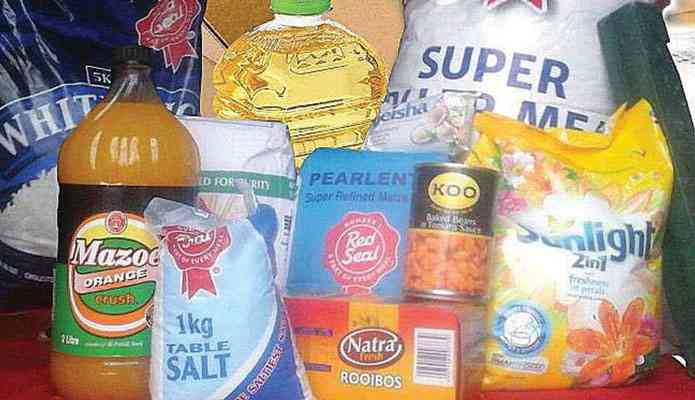
ZIMBABWEAN citizens have fallen on hard times as the cost of living keeps skyrocketing while incomes remain stagnant, trade unions have said.
In January 2024, the Zimbabwe National Statistics Agency reported that headline annual inflation increased to 34,8%, with the cost of living also rising by around 45% in the last month and by about 595% compared to January 2023.
The Consumer Council of Zimbabwe in January said the cost of the food basket for a family of six had shot to $3,6 million, with retailers charging some goods exclusively in United States dollars owing to the depreciating Zimbabwe dollar.
In its latest report, the USAid-funded FewsNet also said the cost of living is set to spike upwards this year, triggered by rising official and parallel market exchange rates.
The local currency is currently trading at US$1: $20 000 against the greenback on the parallel market and US$1: $15 000 on the official market.
Although Finance minister Mthuli Ncube set the taxable earnings at $9 million, the majority of employees have not yet reached that threshold because businesses have also been impacted by the economic turmoil.
Many families are living below the poverty datum line because of the weak economy.
As the cost of living continues to rise quickly, earnings are falling as a result of growing inflation, pushing an increasing number of individuals below the poverty line.
- Drama around Ndebele king making a mockery of the throne
- Umkhathi Theatre Works on King Lobengula’s play
- Street mural exposes Zim’s divided society
- Minister tips ICTs to drive economic recovery
Keep Reading
According to Effie Ncube, a spokesman for the National Consumer Rights Association, employees who receive their pay cheques in local currency are the most negatively impacted because the economy has become nearly entirely dollarised.
“This means workers have to purchase US dollars not only to store value, but also because most goods and services are sold in foreign currency,” Ncube said.
“ Therefore, the meagre incomes are further eroded by the cost of purchasing foreign currency in the parallel market.
“This challenge will continue to be the case until workers are paid in foreign currency.
“Alternatively, Zimbabwean dollar-pegged salaries should be attached to the exchange rate, reviewable on a monthly basis.
“In the short term the rising cost of living will continue the upward trend.
“This will be compounded by the poor harvest due to the drought. In turn this will expand the number of people needing assistance.
“The resulting food shortages will also push prices up and lead to higher food inflation.”
Ncube added: “Additionally, the shortage of water will not only affect food production, but will also reduce the amount of electricity generated from our hydroelectric over stations.”
“In turn this will lead to shortage of electricity and affect agricultural and industrial production,” he said.
“It is expected that a vicious cycle of constrained supply, exchange rate volatility and higher prices will ensue for much of the year.”
Ncube said the government should take proactive and comprehensive measures to alleviate the impact of the rising cost of living.
For example, the importation of basic commodities hit by price hikes and shortages should be made easier through suspension of import duties.
He said this will prevent shortages and keep prices relatively stable.
Zimbabwe Congress of Trade Unions secretary general Japhet Moyo said the welfare of workers is strained at the moment because of these microeconomic issues
“The cost of living has been constantly going while incomes have been lagging behind,” Moyo said.
“If you look at the inflation figures you will realize that it has not been rosy for consumers and this has been the trend for some time now.
“Our local currency has been fast losing value against the US dollar and this exchange rate disparity between the official rate and the parallel market has affected the majority of Zimbabweans still being paid salaries in local currency.
“When the economy is dollarised the only rational thing to do is to remunerate workers in a currency that has value to avoid short changing workers when they try to change their local currency into US dollars.
“At the moment, workers lose out when they try to buy US dollars at the parallel market.
“The welfare of workers is strained at the moment because of these microeconomic issues.”







